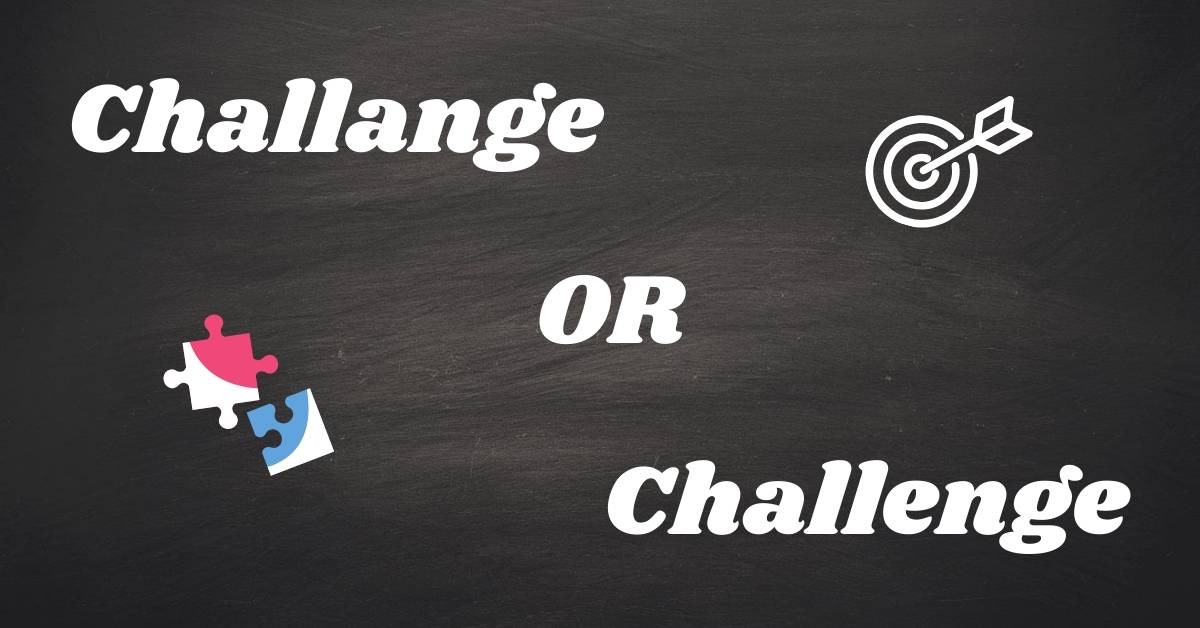Challenge or Challange is a common point of confusion for many writers. Understanding the difference between these two terms is crucial for effective communication.
While “challenge” is the correct spelling and has a clear meaning, “challange” is simply a misspelling that lacks recognition in the English language. This confusion can lead to common spelling mistakes that undermine clarity in both casual and professional writing.
In this article, we will explore the proper usage of “challenge,” its definitions as both a noun and a verb, and provide examples to illustrate its correct application. By mastering this term, you can enhance your writing skills and avoid unnecessary errors.
Quick Summary
At first glance, “challenge” and “challange” may seem similar, but only one is correct. The word “challenge” serves as both a noun and a verb, while “challange” does not hold any recognized meaning in English.
Using the correct spelling is crucial for effective communication. Spelling errors can undermine your credibility and clarity in writing. Therefore, mastering the correct form of words like “challenge” can significantly enhance your writing accuracy and overall communication skills.
Understanding Challange or Challenge
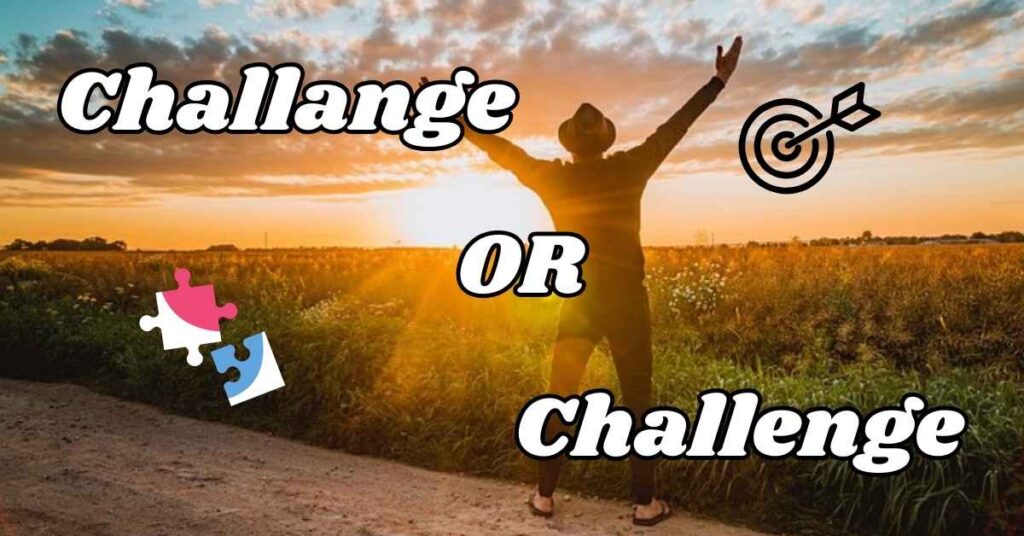
Many people struggle with whether to use “challange” and “challenge,” often due to their phonetic similarity. However, it’s crucial to recognize that “challange” is not a valid term in English; it is simply a spelling mistake.
This distinction helps prevent writing blunders that can undermine your message. In professional contexts, using the correct spelling shows attention to detail and respect for language rules.
The word “challenge” effectively describes obstacles in personal growth or professional endeavors, while “challange” should be avoided to ensure clarity in your writing.
Etymology of Challenge
The word “challenge” originates from Middle English and derives from the Old French term “chalenge,” meaning to accuse or dispute. Initially associated with accusations and claims, its meaning evolved over time. By the mid 15th century, it began to signify a difficult task, reflecting its current usage in various contexts, including sports and intellectual pursuits.
Challange: Definition and Usage
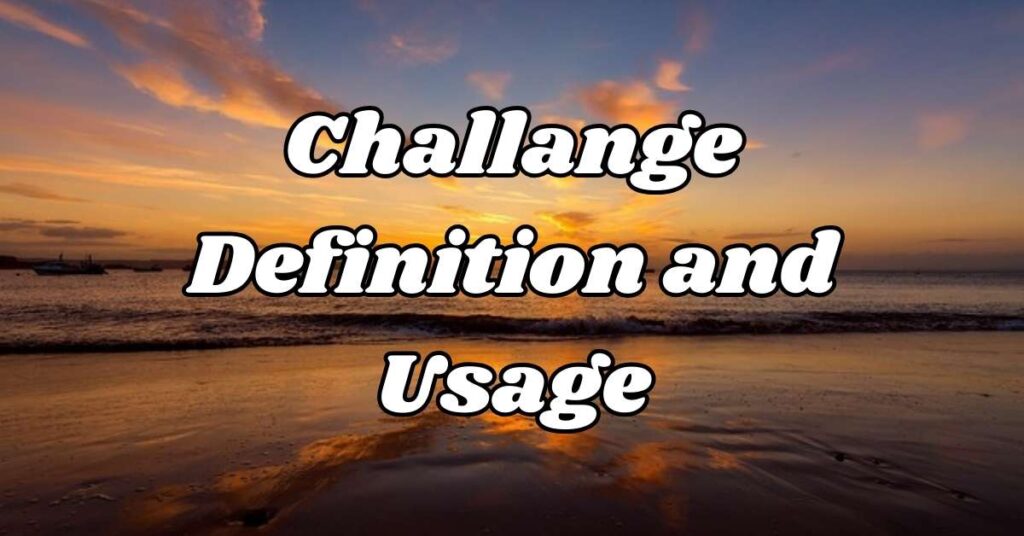
“Challange” is merely a misspelling of “challenge” and has no recognized meaning in standard English. When you see this term, it’s important to identify it as an error.
For example, the sentence “I faced a difficult challange” should be corrected to “I faced a difficult challenge,” enhancing professionalism. Using “challenge” accurately is crucial in both spoken and written communication, as it describes situations where individuals confront difficulties.
A statement like “I decided to take on this challenge because I want to grow” exemplifies how “challenge” serves as both an action and a concept.
Synonyms of Challange
Since “challange” does not exist as a word, we will focus on synonyms for “challenge.” Here are ten alternatives that convey similar meanings:
- Test
- Obstacle
- Difficulty
- Trial
- Confrontation
- Contest
- Dare
- Provocation
- Stimulation
- Challenge
Challenge: Definition and Usage
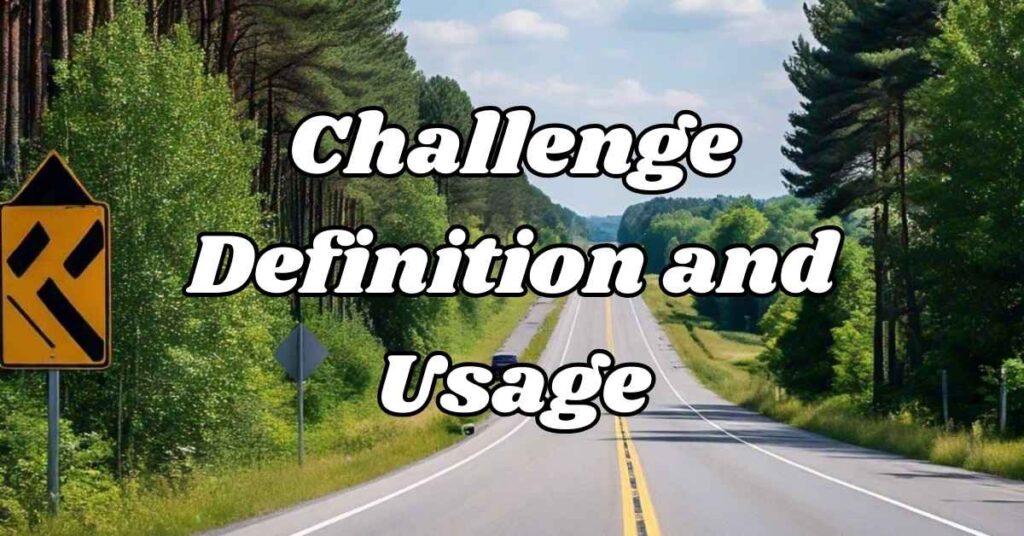
“Challenge” functions as both a noun and a verb in English. As a noun, it describes something that tests one’s abilities, such as saying, “Climbing Mount Everest is a significant challenge.”
As a verb, it means to invite someone to compete, as in “I challenge you to solve this puzzle.” This versatility makes “challenge” vital in everyday language.
Using it correctly enhances your communication skills in various contexts, from casual chats with friends to formal presentations at work, ultimately improving your overall written and verbal expression.
Synonyms for “Challenge”
Here are ten synonyms for “challenge” that you might find useful:
- Contest
- Difficulty
- Obstacle
- Provocation
- Dare
- Trial
- Confrontation
- Test
- Invitation (to compete)
- Challenge
These alternatives provide you with options when discussing challenges in various scenarios.
Side by Side Comparison
To further clarify the differences between “challenge” and “challange,” here’s a side-by-side comparison:
| Aspect | Challenge | Challange |
| Definition | A task or situation testing abilities | Not recognized as a word |
| Spelling | Correct spelling | Misspelling of “challenge” |
| Common Usage | Used in various contexts | Does not appear in correct writing |
| Grammatical Function | Noun & Verb | Not applicable |
| Meaning | Clear and recognized meaning | No meaning or definition |
Everyday Usage Examples

Understanding how to use “challenge” and recognizing its misspelling as “challange” is crucial for effective communication. In daily conversations or formal writing, using these terms correctly enhances clarity and professionalism while avoiding misunderstandings that could arise from spelling errors.
Challange Example
Since “challange” is simply incorrect spelling of “challenge,” it serves no purpose in effective communication. However, recognizing its existence helps writers avoid this common pitfall by ensuring they always use the correct term when discussing obstacles or difficult tasks they face in life.
Example sentences of “Challange”
Here are some incorrect example sentences featuring the misspelling:
- I faced a great challange during my project.
- The teacher gave us a challange for extra credit.
- Overcoming this challange taught me resilience.
- She accepted the challange with enthusiasm.
- The movie depicted many characters facing their challanges.
These sentences highlight how improper spelling can lead to confusion and miscommunication.
Challange as a Noun:
Using “challange” as a noun is incorrect because it does not exist in English vocabulary; instead, always opt for “challenge.” For example: “The challenge was tough but rewarding.” This illustrates how nouns function within sentences effectively when spelled correctly.
Challange as a Verb:
“Challange” as a verb is also incorrect; instead use “challenge.” An example would be: “I challenge you to think differently.” This showcases how verbs operate within sentences when utilized properly with correct spelling.
Challenge Example
“Challenge” has numerous applications across different contexts such as personal growth or competitive environments like sports or academics. It can represent any task requiring effort and determination, essentially anything that pushes someone beyond their comfort zone.
Example sentences of “Challenge”
Here are some sentences illustrating proper usage of “challenge”:
- She accepted the challenge with great enthusiasm.
- The challenge ahead was daunting but achievable.
- He loves taking on new challenges every day.
- Completing that marathon was her biggest challenge yet.
- They presented their ideas as part of the challenge.
These sentences demonstrate how versatile and impactful using “challenge” correctly can be in conveying meaning effectively.
Challenge as a Noun:
As mentioned earlier, when used as a noun, “challenge” refers to something that tests one’s abilities: for example: “The challenge was more difficult than I anticipated.” This sentence shows how nouns provide clarity about what is being discussed.
Challenge as a Verb:
“Challenge” means inviting someone to compete or engage: for instance: “I challenge you to finish this book by next week.” This highlights how verbs create action within sentences effectively while maintaining clear communication.
Other Common Misspellings of “Challenge”
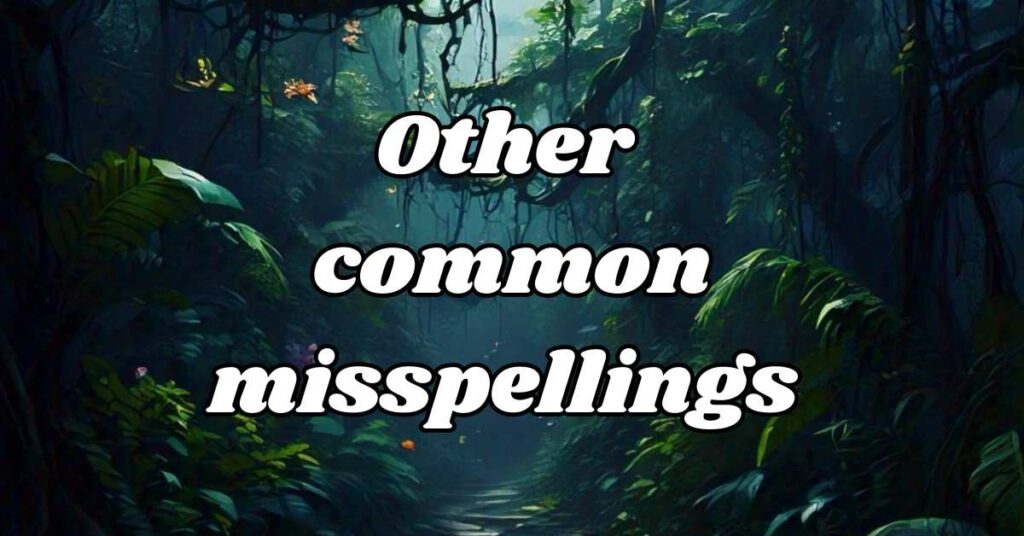
“Challange,” there are other common misspellings related to “challenge.” Some people mistakenly write it as “chalenge,” which also lacks recognition in standard English usage; others might confuse it with similar-sounding words like “chalenge,” leading them astray from proper spelling conventions altogether.
You May Also Like: Hassle or Hastle: What’s the Difference?
FAQS: Challange or Challenge
What is the verb of challenge?
The verb of “challenge” is “to challenge,” meaning to invite someone to compete or confront a difficulty.
What is a word for challenge?
A synonym for “challenge” is “test,” which conveys a similar idea of assessing abilities.
What is challenge in grammar?
In grammar, “challenge” can function as both a noun and a verb, depending on its usage in a sentence.
What is the present tense of challenge?
The present tense of “challenge” is simply “challenge,” as in “I challenge you to try.”
Conclusion
Understanding the difference between “Challenge or Challange” is essential for effective communication. While “challenge” is the correct term that signifies obstacles and tests of ability, “challange” is simply a misspelling that should be avoided.
Mastering the proper usage of “challenge” not only enhances your writing clarity but also reflects professionalism in your communication. By being mindful of such common spelling mistakes, you can significantly improve your language skills and ensure that your message resonates clearly with your audience.
Challenge or Challange are often confused and misspelled due to their similarity. Learn which one is correct and how to use it.
Related Post: Tomorrow or Tommorrow: What’s the Difference?

